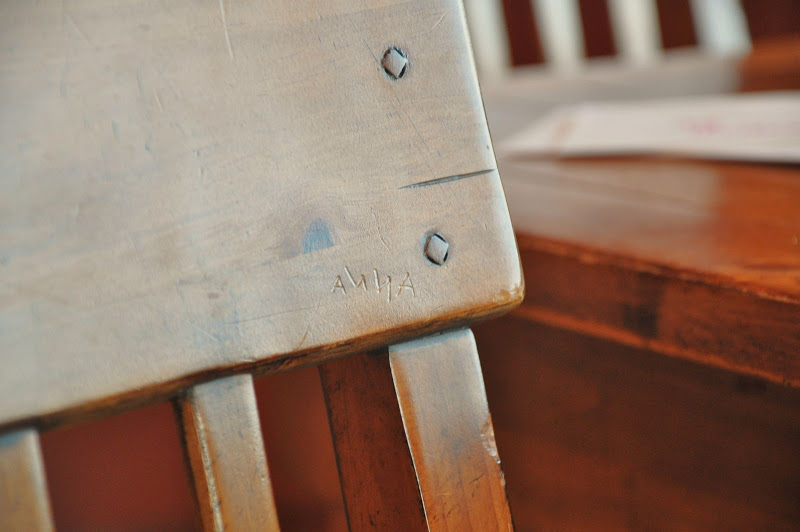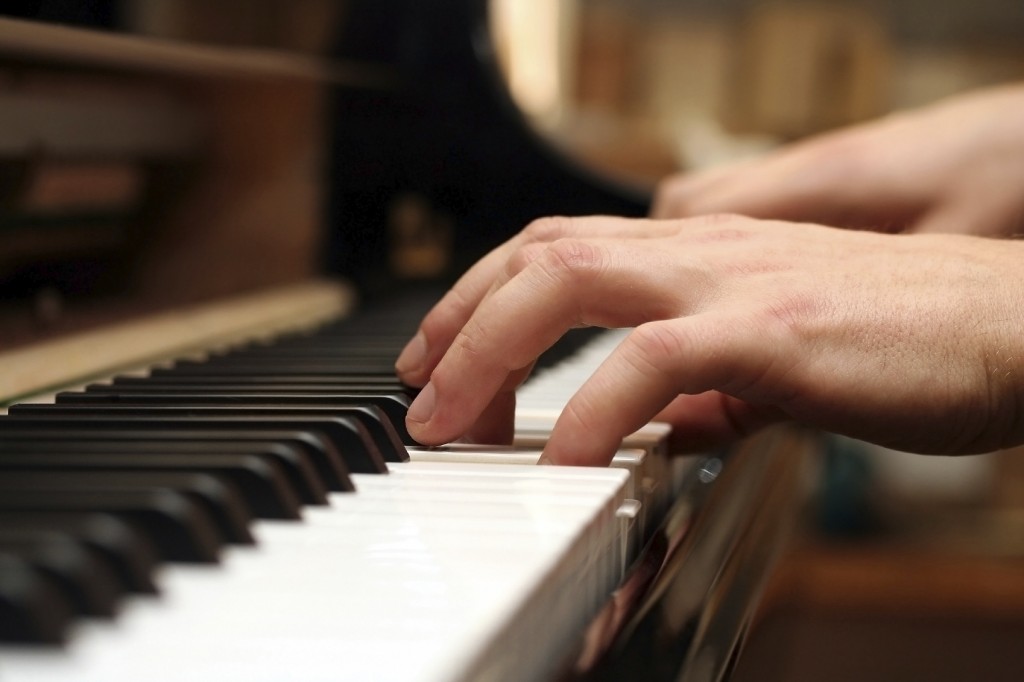I ask the world’s most obvious question: “All right, who did this?”
I jab a finger at the letters carved into the back of the wooden kitchen chair:
A N N A.
Anna’s older sister chimes in first, rolling her eyes for dramatic effect. “I recognize those backwards Ns anywhere,” she says.
Anna’s fork falls with a guilty clink on the plate. She buries her face in her palms, as if she might squeeze her whole self behind her hands if she presses hard enough.
I trap my tongue behind clenched teeth. Hush, Jennifer. You’ll regret what you’re about to say. I can see the red of shame rising in her cheeks, behind a camouflage of fingers.
I had pledged that I’d never yell over a child’s error or misbehavior. Furthermore, I had actually acknowledge weeks earlier that I found beauty in the unintentional etchings of this wooden kitchen table.
This pine rectangle is a tableau of life with its nicks and scrapes and grooves. I’ve run my fingers along the wood, like a memory-Braille. In the golden slant of sunlight, I find a grandfather’s check marks, which he inadvertently carved with his firm handwriting. He’s gone now.
I touch deep-grooved tine points. They were banged in by a toddler; it was her first time with a “big-people fork.”
I run a finger along that one long scratch. It was an accidental souvenir left by a visiting missionary’s laptop.
And now this: Anna’s name carved in half-inch tall letters on the back of the chair.
She is shuddering behind her hands. I peel her palms back and lift her onto my lap, ladling her body. She shakes. Shame runs fluid down her cheeks.
I hold her tight, swallowing the caustic sermon about the difference between right and wrong. She knows. She knows.
*****
Three days later, she stands at the back door, with her gaze locked on her feet.
“I did it Mommy,” she confesses.
“Did what, Anna?” I ask, making a panicked inventory of the room. (I had forgotten about the chair, but suddenly remember the Sharpies within reach.)
“I carved my name on the chair because I want that to be my chair, and you always move it when you mop the floors.” Her words bear the hope of a pardon. “Are you going to be mad at me now?”
I drop to my knees in front of her, lifting her chin to release her gaze from the tips of her snow boots. We talk about why it was wrong to carve letters into the wood. I repeat a lesson about respect and caring for things that God has given us. We talk about the importance of saying sorry. And she did. She said she was sorry. And just as I have been forgiven much, I forgive. We seal the sorry with a hug.
But there’s something I didn’t tell her. (So let’s keep this one between you and me. Deal?)
When she wasn’t watching, I snapped a few photographs of a single word carved in wood. It will be an enduring little Valentine from a girl who won’t write with backward Ns much longer.
*****
Be kind and compassionate to one another, forgiving each other, just as in Christ God forgave you. — Ephesians 4:32






















